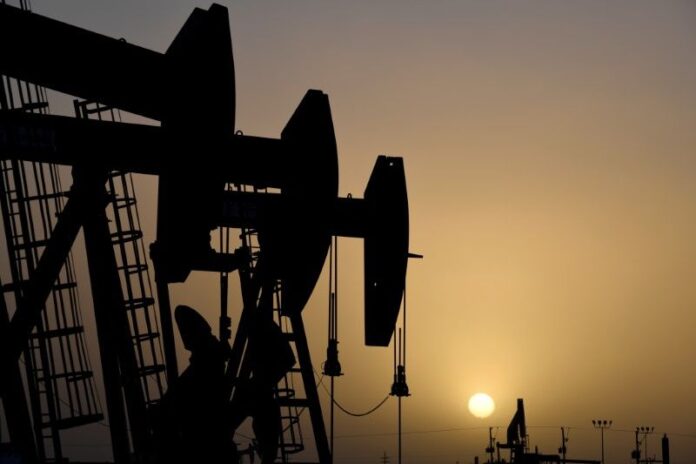LONDON: US oil prices rose 10pc on Thursday after a three-day sell-off as the spread of the coronavirus and a battle for market share between Saudi Arabia and Russia drove prices to their lowest in almost 20 years.
Benchmark Brent, which has lost half its value in less than two weeks, got some respite as investors across financial markets assessed the impact of massive central bank stimulus measures.
Brent crude LCOc1 was up 93 cents, or 3.8pc, at $25.81 a barrel by 1416 GMT, having plunged to $24.52 on Wednesday, its lowest since 2003.
West Texas Intermediate (WTI) crude CLc1 gained $2.20, or 10.8pc, to $22.57 after dropping nearly 25pc to an 18-year low in the previous session.
Analysts, however, said gains were likely to be temporary as tumbling demand is compounded by the collapse this month of a deal between OPEC, Russia and others to curb supply.
Saudi Arabia, de facto leader of OPEC, has since kicked off a price war with Russia, planning to increase supply to a record high 12.3 million barrels per day (bpd) for months.
The drop in demand, particularly in transportation, is also leading to a rapidly growing glut in refined products such as jet fuel and gasoline.
“From April 1, about 4 million bpd could flood the markets, potentially pushing down crude oil prices into the teens,” Jefferies analysts said in a note.
“Unless somebody intervenes, no oil producer benefits from the current environment.”
In the United States, where dozens of shale oil and gas drillers and services companies risk bankruptcy, senators on Wednesday urged Saudi Arabia and Russia to halt their price war during talks with the kingdom’s envoy to Washington.
The senators urged President Donald Trump to impose an embargo on oil from the two countries.
Meanwhile, the spread of the virus is showing no sign of abating, with governments resorting to lockdowns in a bid to contain the disease, raising the prospect of a global recession.
Central banks have moved to mitigate the spiraling economic and financial fallout, with the European Central Bank kicking off a 750 billion euro ($820 billion) emergency bond purchase scheme.
“While the spreading of the virus has further to go and oil prices further to drop, we are now probably getting very close to peak fear in western and global financial markets,” said Bjarne Schieldrop, chief commodities analyst at SEB.




